Are you a parent in Singapore looking for the perfect preschool for your child? With so many options available, it can be overwhelming to decide which one is the best fit. That’s where this guide to preschools in Singapore comes in. We’ve done the research for you and compiled a comprehensive list of the top preschools in Singapore, organised by location and type of programme.
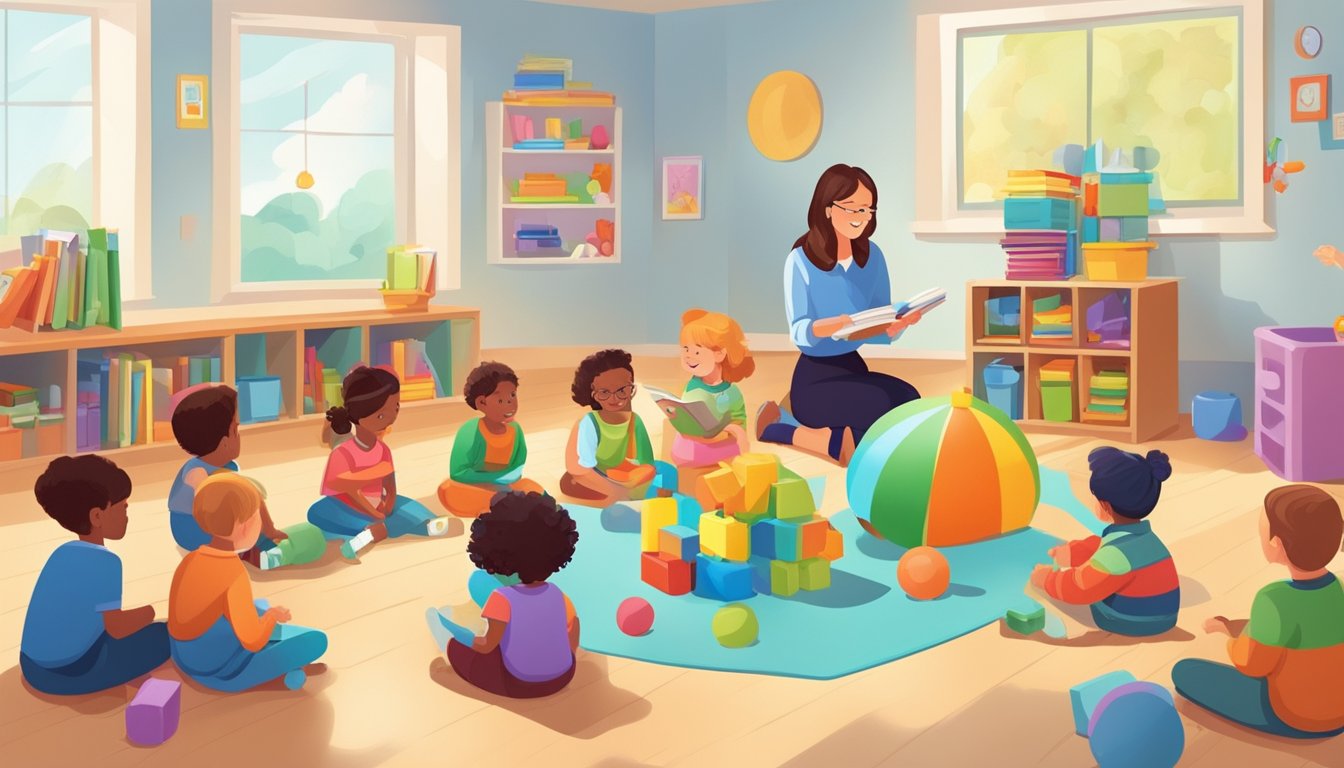
Whether you’re looking for a play-based preschool, bilingual programmes, or preschools with an outdoor space, you’ll find something that suits your family’s needs in this guide. We’ve included information on each preschool’s curriculum, facilities, and admission requirements, as well as reviews from other parents. Plus, we’ve highlighted any unique features or awards that make each preschool stand out. With this guide, you can make an informed decision and find the perfect preschool for your child’s early learning experience.
2 Min Read
Choosing the right preschool for your child can feel overwhelming. But fear not! This guide provides a quick overview of preschool options in Singapore to help you make an informed decision.
What to Consider:
- Preschool Types: Public (Kindergartens) offer a good foundation at an affordable price. Private preschools provide more program and curriculum flexibility, but come at a higher cost. International schools cater to expat families with diverse curriculums.
- Curriculum: Play-based learning, bilingual programs, Montessori, Reggio Emilia, Waldorf Steiner – explore these options to find the best fit for your child’s learning style.
- Location & Facilities: Consider convenience and amenities like playgrounds, libraries, and safety measures.
Additional factors:
- Culture & Values: Find a school that aligns with your family’s beliefs.
- Inclusivity: Look for a diverse student body and staff that promotes acceptance.
- Cost & Financial Aid: Research fees and explore government subsidies to find the best fit for your budget.
Next Steps:
- Research specific preschools that interest you.
- Visit the schools, speak with the staff, and observe the classrooms.
- Consider your child’s individual needs and preferences.
With careful planning, you can find the perfect preschool to launch your child’s educational journey in Singapore!
Understanding Preschool Education in Singapore
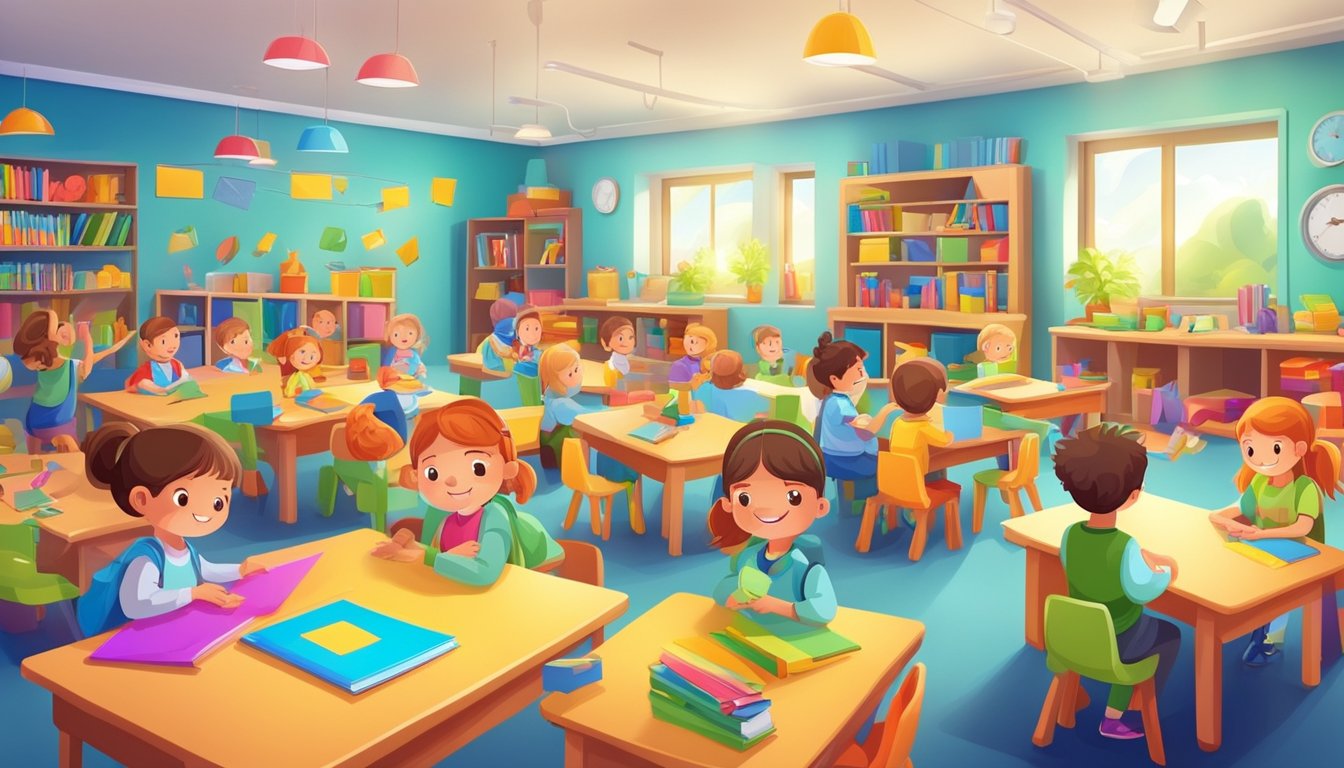
If you are a parent in Singapore, you may be wondering about the different types of early childhood education available for your child. Preschool education in Singapore is an important foundation for a child’s future academic success. In this section, we will explore the key aspects of preschool education in Singapore.
Preschool vs Kindergarten
Preschool and kindergarten are often used interchangeably, but they are not the same thing. Preschool is a more general term that refers to any early childhood education programme for children aged 18 months to 6 years old. Kindergarten, on the other hand, is a specific type of preschool education that is typically offered to children aged 4 to 6 years old.
Early Years Foundation Stage
The Early Years Foundation Stage (EYFS) is a framework for early childhood education in Singapore. It is a comprehensive curriculum that covers all aspects of a child’s development, including physical, emotional, and social development. The EYFS is designed to provide children with a strong foundation for future learning and development.
The Role of the Ministry of Education
The Ministry of Education (MOE) is responsible for overseeing preschool education in Singapore. The MOE sets standards and guidelines for preschool education, and works closely with preschools to ensure that these standards are met. The MOE also provides funding and support for preschool education, and is committed to ensuring that all children in Singapore have access to high-quality early childhood education.
Types of Preschools in Singapore
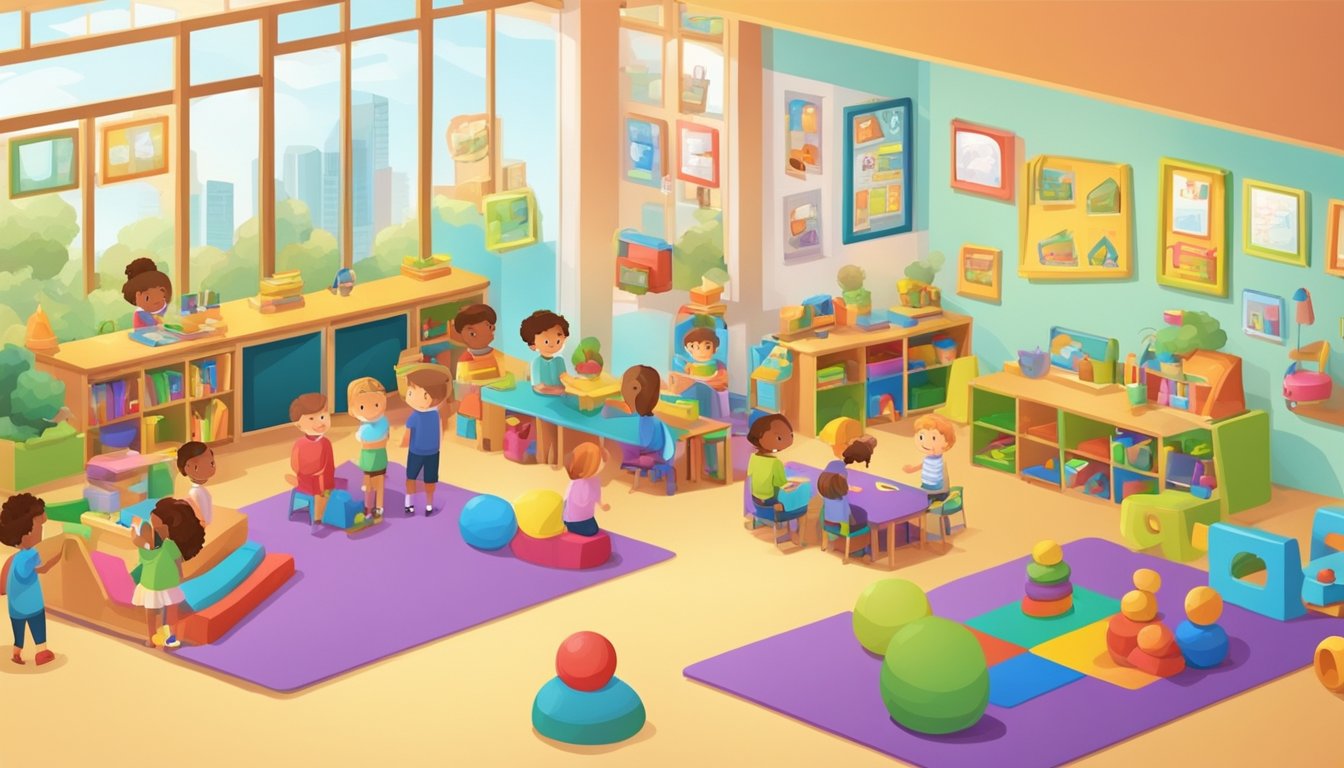
Are you looking for the right preschool for your child in Singapore? With so many options available, it can be overwhelming to choose the best one. In this guide, we will explore the different types of preschools in Singapore to help you make an informed decision.
Public vs Private Preschools
Public preschools in Singapore are run by the Ministry of Education (MOE) and are known as Kindergartens. They follow the Nurturing Early Learners (NEL) Framework developed by MOE to provide a holistic education for children aged 4 to 6 years old. Public preschools are affordable and provide a good foundation for primary school education.
On the other hand, private preschools in Singapore are run by private organizations and offer a wider range of programs and curriculums. They are more expensive than public preschools, but they offer more flexibility in terms of schedule and curriculum. Private preschools also offer smaller class sizes and more individualized attention to each child.
International Preschools and Their Curriculums
International preschools in Singapore cater to expatriate families and offer a diverse range of curriculums. They provide a multicultural environment and offer programs that cater to the needs of children from different countries. Some of the popular international preschools in Singapore include Canadian International School, Australian International School, and Stamford American International School.
The curriculums offered by international preschools vary, but they generally follow the International Baccalaureate (IB) or the Early Years Foundation Stage (EYFS) frameworks. The IB curriculum focuses on developing the whole child and encourages children to become lifelong learners. The EYFS framework is based on play-based learning and focuses on developing social, emotional, and cognitive skills.
Montessori, Reggio Emilia, and Waldorf Steiner Approaches
Montessori, Reggio Emilia, and Waldorf Steiner are alternative approaches to preschool education that are gaining popularity in Singapore. These approaches focus on child-led learning and provide a more hands-on, experiential learning environment. They also emphasize the importance of social and emotional development.
Montessori preschools follow the teachings of Dr. Maria Montessori and provide a prepared environment that allows children to learn at their own pace. Reggio Emilia preschools are inspired by the Reggio Emilia approach developed in Italy and focus on project-based learning and collaboration. Waldorf Steiner preschools are based on the teachings of Rudolf Steiner and provide a holistic education that focuses on the arts, music, and movement.
Choosing the Right Preschool
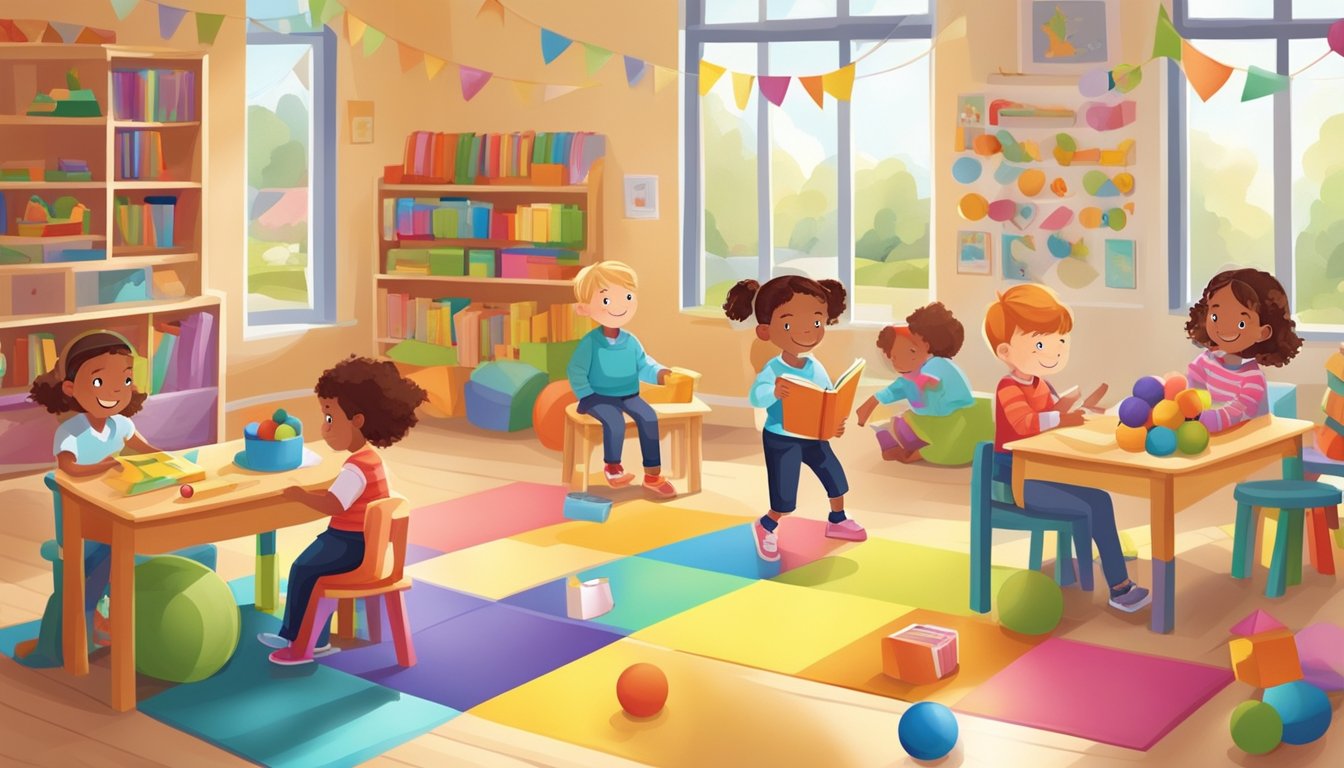
Choosing a preschool for your child is a significant milestone. It’s natural to feel overwhelmed by the many options available in Singapore. However, with a little research and planning, you can find the right preschool that meets your child’s needs. Here are some factors to consider when selecting a preschool.
Factors to Consider When Selecting a Preschool
- Culture and Values: Every preschool has a unique culture and set of values. It’s essential to find a preschool that aligns with your family’s values and beliefs. For example, if you value bilingual education, look for a preschool that offers a bilingual language programme.
- Pedagogies: Understanding different pedagogies can help you choose a preschool that aligns with your child’s learning style. Some popular pedagogies in Singapore include Montessori, Reggio Emilia, and Waldorf. Research these pedagogies to see which one resonates with your child’s learning style.
- Inclusivity: Inclusivity is crucial when selecting a preschool. Make sure the preschool has a diverse student body and staff and promotes inclusivity and acceptance.
- Safety: Safety should be a top priority when choosing a preschool. Look for a preschool that has adequate safety measures in place, such as secure entrances, CCTV cameras, and trained staff.
Understanding Different Pedagogies
As mentioned earlier, understanding different pedagogies can help you choose the right preschool for your child. Here’s a brief overview of some popular pedagogies in Singapore:
- Montessori: Montessori is a child-centred approach that focuses on hands-on learning and self-directed activities. It encourages children to learn at their own pace and develop independence.
- Reggio Emilia: Reggio Emilia is a child-centred approach that focuses on project-based learning and encourages children to explore their interests and ideas. It promotes collaboration and creativity.
- Waldorf: Waldorf is a holistic approach that focuses on nurturing a child’s physical, emotional, and intellectual development. It emphasises creative play, storytelling, and the arts.
The Importance of Location and Facilities
Location and facilities are also important factors to consider when choosing a preschool. Look for a preschool that is conveniently located and has adequate facilities such as a playground, library, and classroom resources. It’s also important to consider the preschool’s hygiene and cleanliness standards.
Preschool Curriculum and Programmes

Choosing the right preschool for your child can be a daunting task, but understanding the curriculum and programmes offered by each preschool can help you make an informed decision. Here are some of the preschool curriculum and programmes available in Singapore.
Bilingual Immersion Core Curriculum
Many preschools in Singapore offer a bilingual immersion core curriculum, which is designed to help children become proficient in both English and Mandarin. This curriculum is based on the belief that children learn best when they are immersed in a language-rich environment. The curriculum is designed to develop children’s language skills, critical thinking, and problem-solving abilities through a range of activities such as storytelling, singing, and role-playing.
Play-Based and Inquiry-Based Learning
Play-based and inquiry-based learning are two popular approaches to preschool education in Singapore. Play-based learning focuses on developing children’s social, emotional, and physical skills through play. Inquiry-based learning, on the other hand, focuses on developing children’s critical thinking and problem-solving skills through exploration and discovery.
Specialised Programmes for Holistic Development
Preschools in Singapore also offer specialised programmes for children with special needs or those who require extra support. These programmes are designed to provide children with a holistic education that addresses their physical, emotional, and cognitive needs. They may include language programmes, speech and occupational therapy, and activity-based approaches to learning.
Tip: Consider Location and Your Child’s Needs!
Finding the right preschool can feel overwhelming, but focusing on location and your child’s learning style helps narrow your search.
Preschools come in many forms, from play-based to Montessori. Think about what ignites your child’s curiosity and choose a school that complements their interests. Is a nearby location crucial for your family’s busy schedule? Once you know these factors, you can find a preschool that fosters your child’s unique development!
Admission and Enrolment Process
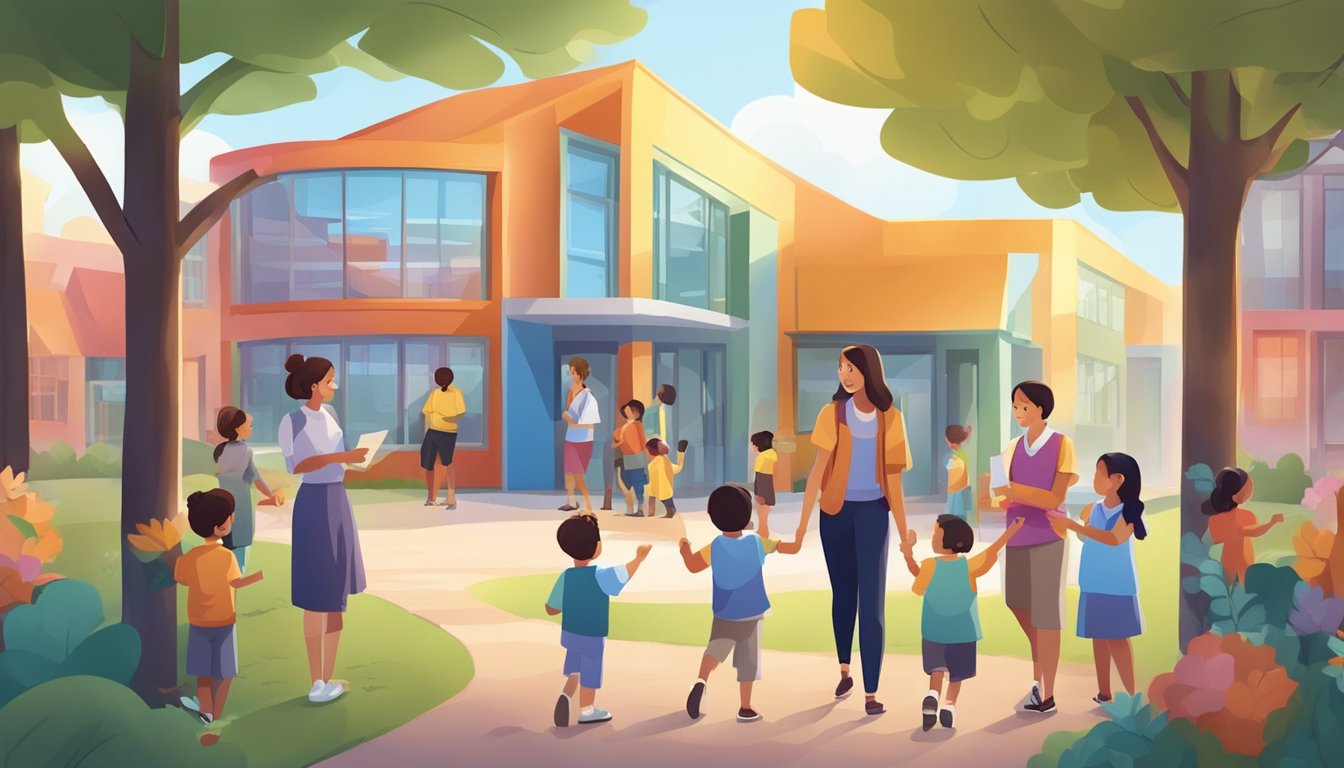
Are you excited to enrol your child in a preschool in Singapore? Here’s what you need to know about the admission and enrolment process.
Understanding the Enrolment Timeline
Preschools in Singapore have different enrolment timelines. Some preschools have a waiting list, while others have a first-come, first-served basis. It is recommended that you start your search for a preschool at least six months before your child is due to start.
Required Documentation and Eligibility
Before you enrol your child in a preschool, you need to ensure that you have all the required documentation. This includes your child’s birth certificate, immunisation records, and your child’s passport if he or she is not a Singapore citizen.
In addition, your child must meet the eligibility criteria for preschool enrolment. Children who are Singapore citizens or permanent residents are eligible to enrol in a preschool from the age of 2 years old. Foreign children who are on Dependent’s Passes or Long Term Visit Passes can enrol in preschools in Singapore if they have a valid pass and are aged between 18 months to 6 years old.
It is important to note that some preschools have their own eligibility criteria, such as a minimum age requirement or a certain level of development. Make sure to check with the preschool of your choice for their specific requirements.
Enrolling your child in a preschool in Singapore can be a smooth process if you have all the required documentation and meet the eligibility criteria. Keep in mind the enrolment timeline and start your search early to secure a spot for your child.
Cost and Financial Considerations
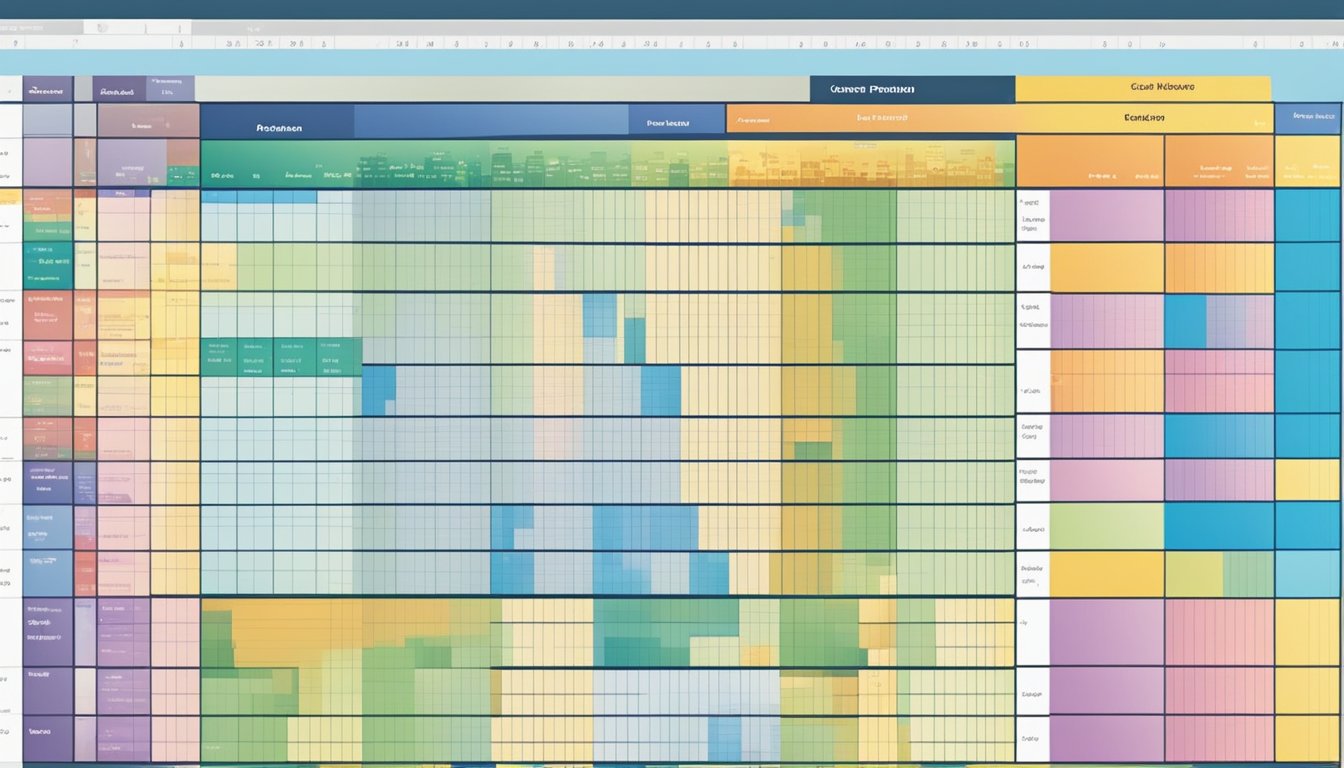
As you begin your search for a preschool in Singapore, one of the most important factors to consider is the cost. Understanding the fees and financial aid available can help you make an informed decision about which preschool is right for your child and your family’s budget.
Understanding Preschool Fees in Singapore
Preschool fees in Singapore can vary widely depending on the type of school you choose and the age of your child. According to SingSaver, the cost for preschool can range from S$14 to S$36 per day, depending on the school you choose. Private preschools in Singapore naturally cost more than their government-run counterparts, so you can expect fees upwards of $1,500 per school term, as mentioned in The Smart Local.
It’s important to note that preschool fees have been gradually increasing, with some occasionally raising their fees by around 5%. As such, it’s essential to research and compare different preschools to find the one that best fits your family’s budget and needs.
Government Subsidies and Financial Aid
The Singaporean government offers various subsidies and financial aid programs to help families offset the cost of preschool. For example, the Anchor Operator Scheme provides subsidies to eligible preschools to help reduce fees for parents. Additionally, the Preschool Subsidy Scheme offers financial assistance to families who meet certain income requirements.
To determine your eligibility for these programs, you can visit the Early Childhood Development Agency website or speak with a representative from your chosen preschool. Keep in mind that these subsidies and financial aid programs can help reduce the cost of preschool significantly, so it’s worth exploring your options to find the best fit for your family.
Preschools Across the Island
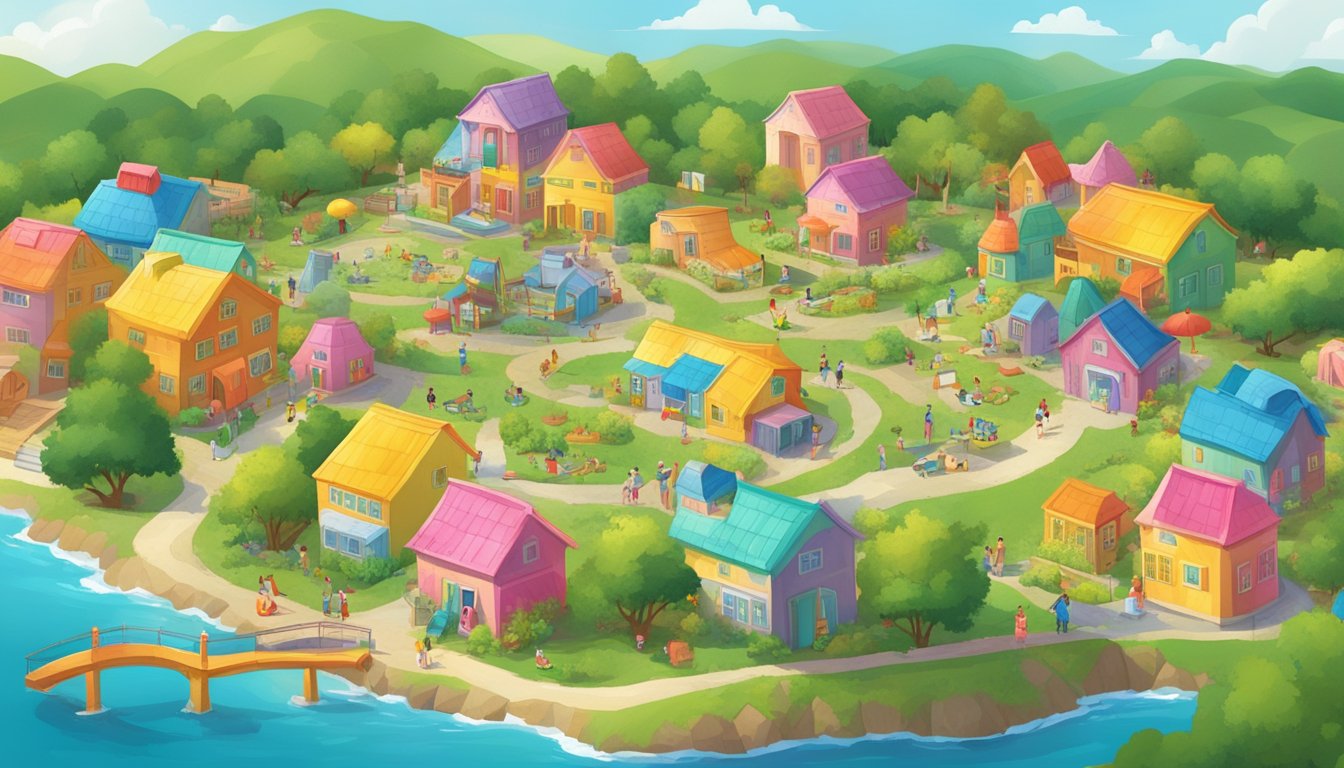
If you are looking for a preschool in Singapore, you will surely find one that suits your needs. There are many preschools across the island, with multiple locations in different areas.
Preschools in Central Singapore
Central Singapore is home to some of the best preschools in Singapore. These preschools offer a safe and nurturing environment for your child to learn and grow. Some of the preschools in Central Singapore include:
These preschools offer a range of programmes, including bilingual programmes, Montessori programmes, and more.
East Coast to West Coast: Finding Your Ideal Location
If you are looking for a preschool in Singapore, you will find many options from east coast to west coast. Some of the best preschools in Singapore are located in the east coast, such as:
In the west coast, you will find preschools such as:
When choosing a preschool, it is important to consider the location, programme, and facilities. You want to choose a preschool that is convenient for you and your child, and that offers a programme that meets your child’s needs.
Support Services and Additional Offerings
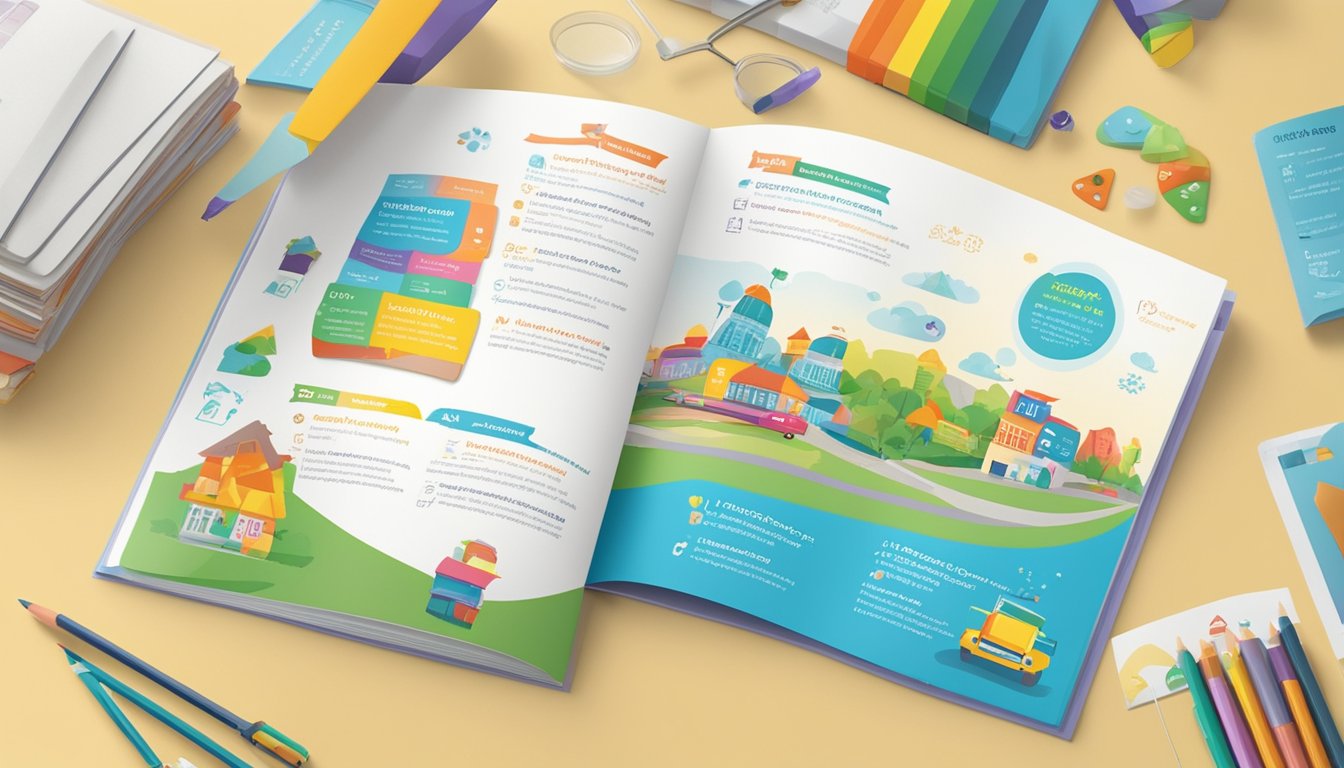
As a parent, you want your child to receive the best possible care and education when they attend preschool. In addition to the core curriculum, many preschools in Singapore offer a range of support services and additional offerings to enhance your child’s learning experience.
Meals and Nutrition at Preschool
Many preschools provide meals and snacks for their students. It is important to check with the preschool to see what kind of food they offer and whether they cater to special dietary needs. Some preschools may offer vegetarian or halal options, while others may provide meals that are low in sugar, salt and fat.
In addition to providing meals, some preschools may also offer nutrition education programs to teach children about healthy eating habits. This can be a great way to help your child develop a lifetime of healthy eating habits.
After-School Care and Additional Services
Many preschools offer after-school care services for working parents. This can include extended hours for pick-up, as well as enrichment programs such as music, art, and sports.
In addition to after-school care, some preschools may also offer additional services such as transportation to and from the school, medical care, and counselling services for children and parents.
When choosing a preschool, it is important to consider what support services and additional offerings are available. These can help ensure that your child receives the best possible care and education, and can also make your life as a parent easier and more convenient.
Parental Involvement and Community
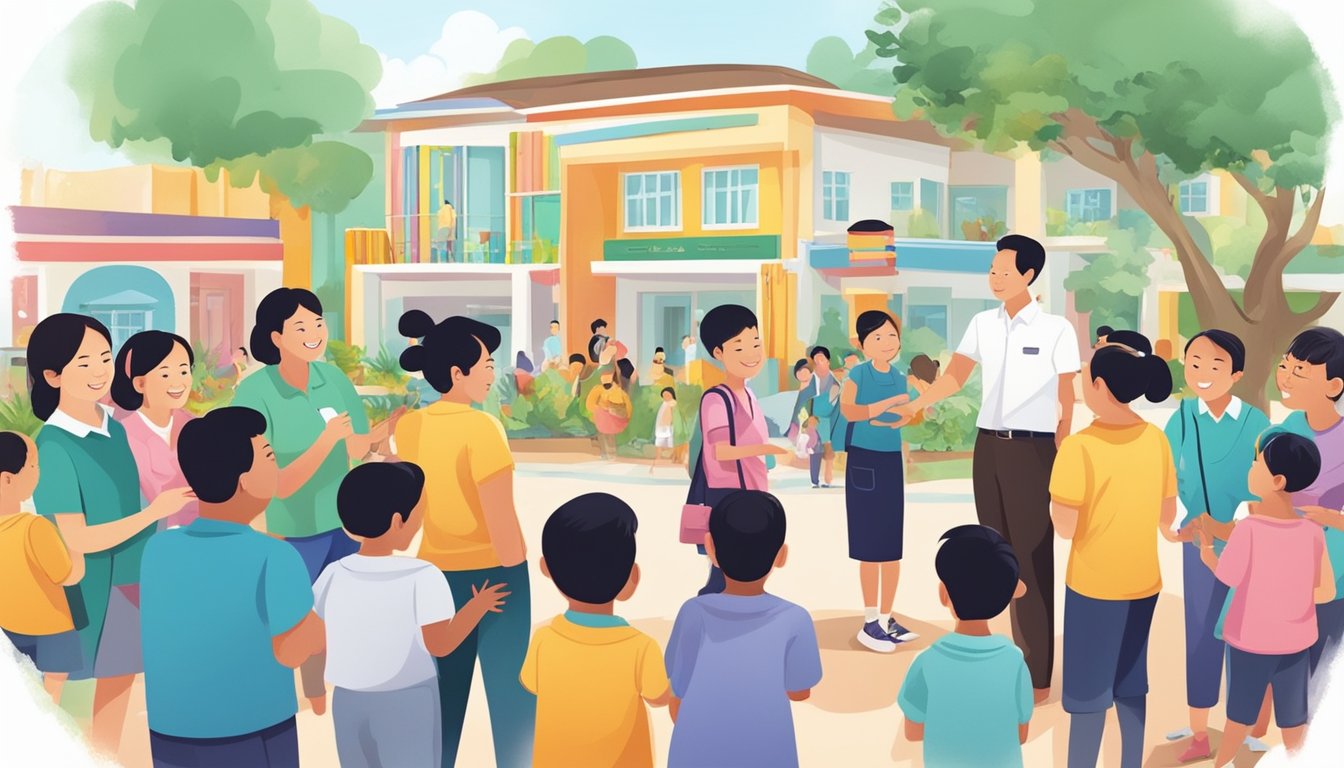
As a parent, you play an essential role in your child’s preschool experience. Parental involvement is crucial in building a supportive preschool community that fosters learning and development. In this section, we will discuss the importance of parental involvement and community in your child’s preschool education.
Building a Supportive Preschool Community
Preschools in Singapore place a strong emphasis on building a supportive community that includes parents, teachers, and other stakeholders. By actively participating in your child’s preschool community, you can help create an environment that supports your child’s learning and development.
One way to get involved is to attend parent-teacher meetings and events. These meetings provide an opportunity for you to meet your child’s teacher, learn about your child’s progress, and discuss any concerns you may have. You can also volunteer to help with school events, such as field trips, fundraisers, and classroom activities.
Parent-Teacher Partnerships
A strong parent-teacher partnership is essential to your child’s preschool education. By working together, you can create a supportive learning environment that helps your child reach their full potential.
To build a strong partnership, it is essential to maintain open communication with your child’s teacher. You can ask questions, share concerns, and provide feedback about your child’s progress. You can also ask your child’s teacher for suggestions on how to support your child’s learning at home.
Another way to build a strong partnership is to be actively involved in your child’s learning. You can read with your child, help with homework, and engage in educational activities that align with your child’s interests. By working together, you can help your child develop a love for learning that will last a lifetime.
Preparing for Primary School
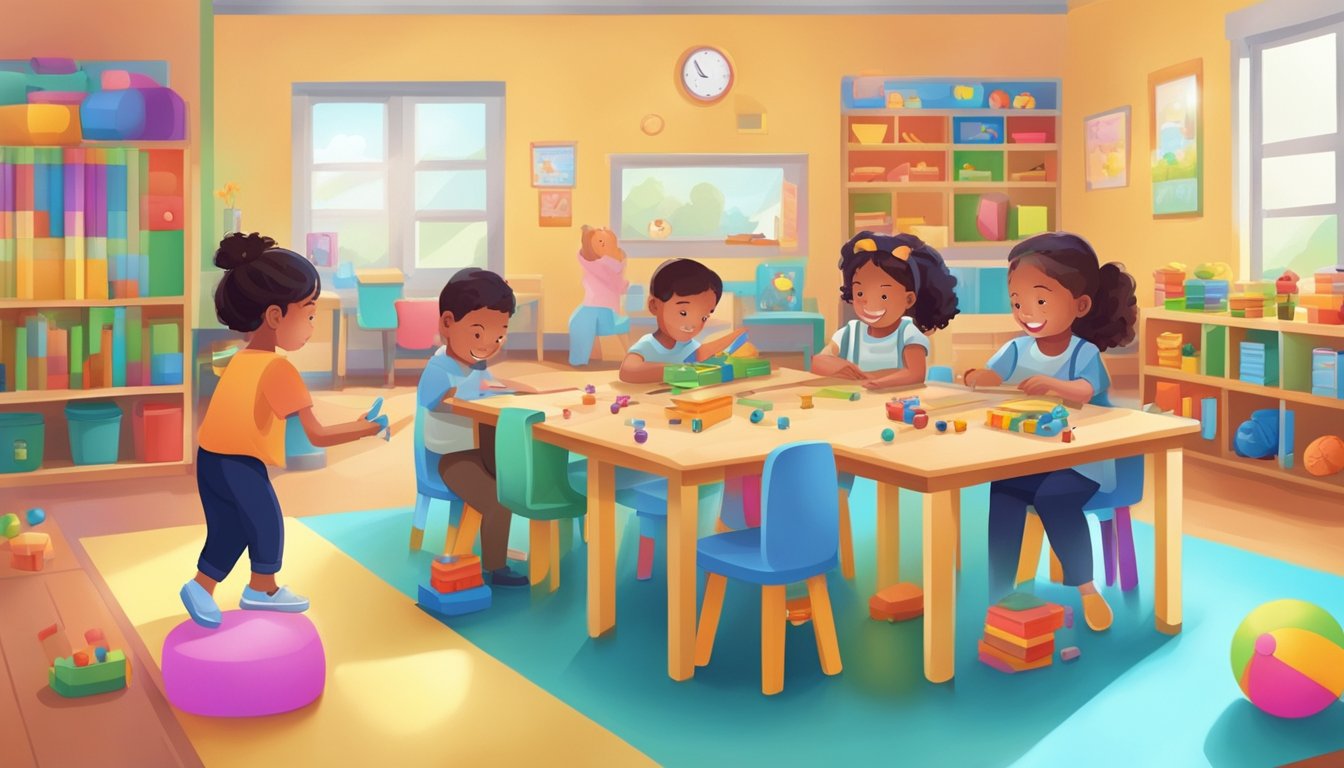
Congratulations! Your child is about to embark on an exciting journey to Primary School. As a parent, it is natural to feel a little anxious about the transition from Preschool to Primary School. However, with the right preparation, you can help your child make a smooth transition. Here are some tips to help you prepare for Primary School.
Transitioning from Preschool to Primary School
The transition from Preschool to Primary School can be a big adjustment for your child. To help your child adjust to the new routines and schedules, you can get your child to:
- Practise going to bed and waking up at the same time daily during the holidays.
- Encourage your child to be independent in daily tasks such as dressing up and eating.
- Familiarize your child with the school environment by visiting the school before the school term starts.
- Talk positively about the upcoming changes and encourage your child to ask questions.
The P1 Registration Process
The P1 registration process can be a daunting task for parents. As a parent, you need to be aware of the registration process and the key dates to ensure that your child secures a place in a Primary School. Here are some key points to note:
- The registration process usually starts in June and ends in September.
- You can register your child at any Primary School, regardless of your residential address.
- If the number of applications exceeds the number of available places, balloting will be conducted.
- To increase your chances of securing a place in a Primary School, you can register at several schools.
By following these tips, you can help your child prepare for Primary School and ensure a smooth transition. Remember to stay positive and excited about this new chapter in your child’s life.
Frequently Asked Questions
What are the top-rated preschools in Singapore?
Singapore has a wide range of preschools, each with its own strengths and weaknesses. While there is no definitive list of the top-rated preschools in Singapore, you can find some of the most highly recommended preschools on Sassy Mama. Keep in mind that every child is unique, and what works for one child may not work for another.
How can I find a comprehensive list of preschools accredited by the ECDA?
The Early Childhood Development Agency (ECDA) is responsible for accrediting preschools in Singapore. You can find a comprehensive list of ECDA-accredited preschools on their website.
What does the Singapore preschool curriculum entail?
The Singapore preschool curriculum is designed to provide a strong foundation for future learning. It is based on the “Nurturing Early Learners” (NEL) framework and is divided into six learning areas: Aesthetics and Creative Expression, Discovery of the World, Language and Literacy, Motor Skills Development, Numeracy, and Social and Emotional Development. The curriculum focuses on developing children’s social, emotional, cognitive, and physical skills through play-based learning.
Are there any government-run preschools in Singapore, and how do they compare to private ones?
Yes, there are government-run preschools in Singapore, which are known as Kindergartens. These preschools are typically less expensive than private ones and follow the same curriculum as private preschools. However, private preschools may offer more specialised programmes or facilities that are not available in government-run preschools.
At what age should my child ideally begin their preschool education?
Most preschools in Singapore accept children as young as 18 months old. However, the ideal age for a child to begin their preschool education depends on the child’s developmental readiness and the parents’ preferences. Some children may benefit from starting preschool earlier, while others may need more time to adjust to a structured learning environment.
Is attendance in K1 and K2 levels mandatory for children in Singapore?
While attendance in K1 and K2 levels is not mandatory in Singapore, it is highly encouraged. These two levels of preschool education are designed to provide children with a strong foundation for primary school. Children who attend K1 and K2 levels are better prepared for the academic and social demands of primary school.
Applying for Loans Just Got Easier with Quick Credit
Do rising costs leave you feeling strapped? Quick Credit is here to help.
Just like many Singaporeans, unexpected expenses or dreams of vacations or new gadgets can arise. A personal loan from Quick Credit can bridge the gap.
Simple and Secure
Our streamlined application process takes just minutes, with no complex paperwork. We are a licensed moneylender in Jurong, ensuring your peace of mind.
Take Control of Your Finances Today
Click here to apply for a personalized loan online and eliminate the stress of managing unexpected costs.
